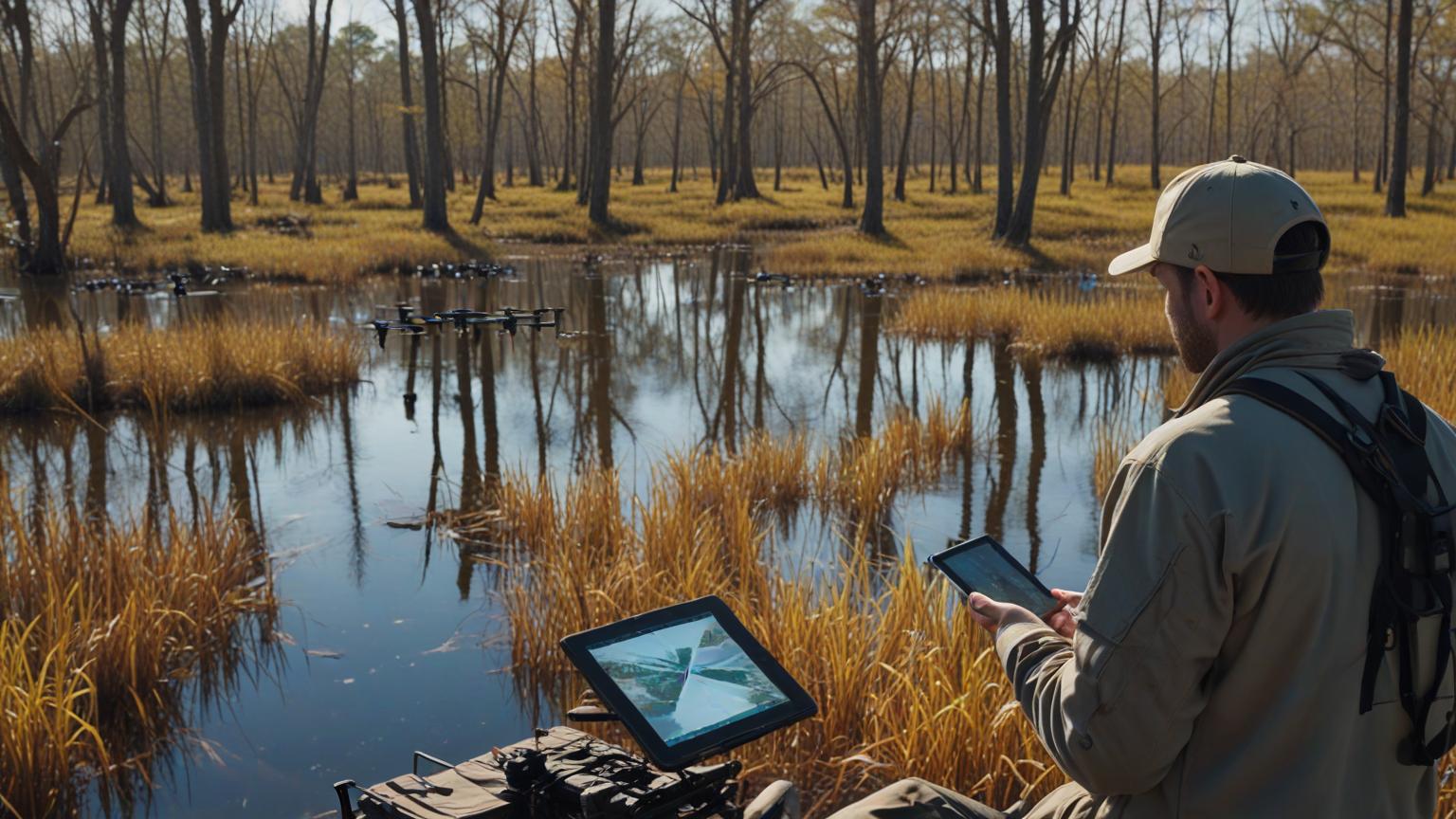Drones are transforming hunting practices across the U.S., and Arkansas hunters are starting to see the advantages too. These small, high-tech devices allow hunters to scout terrain, locate game, and monitor wildlife activity from above, all without disturbing the environment. While drones promise to make duck and deer hunting more efficient, they also raise questions about ethics and regulations. Here’s a look at how hunting drones are likely to reshape duck and deer hunting in Arkansas.
1. Efficient Scouting and Reduced Disturbance
Drones allow hunters to cover large areas quickly, providing an aerial view of dense woodlands, open fields, and wetlands. With high-definition cameras and thermal imaging, drones make it easy to spot animal trails, bedding areas, or ducks in shallow waters—something that can be challenging on foot without causing disturbance.
- Benefits for Deer Hunters: Drones help hunters locate deer trails and feeding areas without leaving behind scent trails, reducing the chances of spooking game.
- Benefits for Duck Hunters: Over wetlands, drones can help spot waterfowl groups from above without disturbing the birds, providing valuable insights for blind placement and timing.
2. Improved Targeting and Ethical Hunting
Drones equipped with thermal or night vision technology can help hunters identify and track game animals more accurately, ensuring they have a clear view before setting up for a hunt. This can lead to more ethical hunts by minimizing the chances of wounding an animal due to poor visibility or rushed targeting.
- Ethical Consideration: Using drones to assist in scouting rather than direct hunting promotes ethical practices. By gaining a clear picture of game behavior and patterns, hunters can make responsible choices about shot placement and timing.
3. Seasonal Adaptation and Real-Time Tracking
Arkansas’ hunting season and weather patterns can be unpredictable, with sudden shifts in temperature, wind, and rainfall. Drones allow hunters to observe game in real time and adapt quickly to changes in animal behavior or movement due to weather shifts.
- Duck Hunting: During migrations or changes in weather, hunters can use drones to check the presence of ducks in different areas and decide whether to set up in new locations.
- Deer Hunting: By monitoring movement patterns across different seasons, hunters can adjust their strategies to align with deer activity during the rut, in colder weather, or in areas with limited food availability.
4. Navigating Arkansas’ Unique Terrains
From Arkansas’ wetlands to dense forests, the state’s varied landscape can be challenging to scout on foot. Drones offer hunters a way to safely survey and navigate these areas, helping them assess routes, identify obstacles, and locate areas that might otherwise go unseen.
- Wetland Advantages: In marshy or flooded areas, drones can spot ducks without requiring hunters to wade through or disturb fragile ecosystems.
- Forest and Hill Advantages: In wooded or hilly regions, drones make it easy to check for natural funnels, ridges, and clearings where deer are likely to travel, helping hunters determine ideal stand placements.
5. Legal and Ethical Considerations
Arkansas, like many states, has regulations on drone use for hunting to prevent unfair advantages or harassment of wildlife. Hunters should always consult state laws and follow ethical guidelines to use drones responsibly.
- Best Practices: Use drones only for scouting before the hunt, avoid actively tracking or harassing animals, and respect restricted areas and private land boundaries.
- Legal Compliance: Hunters should stay updated on Arkansas hunting regulations, as drone use laws may evolve to ensure fair and ethical hunting practices.
Conclusion
Hunting drones offer Arkansas hunters a powerful new way to scout, plan, and adapt for duck and deer hunting. By providing an aerial perspective, drones can make hunting more efficient, safe, and ethical—when used responsibly. As drone technology and regulations evolve, Arkansas hunters have the opportunity to integrate these tools in a way that respects both tradition and innovation, setting the stage for a balanced future in modern hunting practices.

